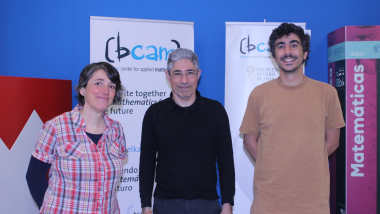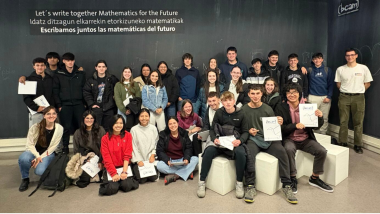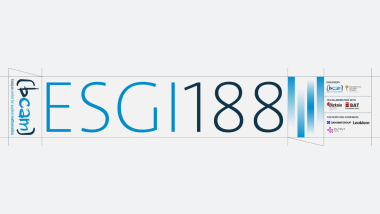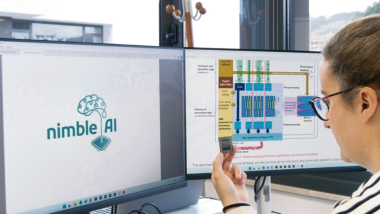Machine learning for forecasting in energy markets
- This year's SEIO 2023 congress will take place in the city of Elche, between 7 and 10 November 2023
Given the growing volatility in energy prices and demand, predictive models have been developed in collaboration between the Machine Learning group of the Basque Center for Applied Mathematics (BCAM) and the Finance Department of Iberdrola, to determine the Initial Margin in the energy markets based on 4 key variables. One of the members of the project, Paula Martín, Research Technician at BCAM, will present this project on 7 and 10 November at the SEIO congress to be held in the city of Elche, Alicante.
In order to develop predictive models, key variables (Price Scan Ranges, Ratios and Credit) have been identified on which to base the prediction. The development of predictive models for Initial Margin in energy markets represents a pioneering effort that seeks to address current challenges in the financial and energy sector, in order to smooth potential risks in energy futures markets. These models have a direct impact on financial decision-making in a context of instability and frequent changes in energy prices and demand.
Initial Margin is the amount of money required in financial derivatives transactions as an initial deposit to back positions in the energy futures market. This guarantee is used to ensure the fulfilment of obligations by the parties involved. The development of predictive models for Initial Margin in energy markets represents a pioneering effort to mitigate potential risks in energy futures markets.
Paula Martín Bonilla is a research technician at BCAM and participates in this IA4TES (Artificial Intelligence for Sustainable Energy Transition) project, commenting that "the predictions generated have demonstrated good accuracy in tests with data corresponding to the years 2022 and 2023. Even in the face of significant volatility and frequent changes in trends in those years, the models have shown their ability to provide reliable and useful information for financial decision making.
"The application of Machine Learning techniques, especially the use of long and short term memory (LSTM) recurrent neural networks, has proven to be a powerful tool to address this challenge", says Paula Martín, "These neural networks have a feedback capacity that allows them to maintain a hidden memory with context-relevant information. Because of this, they have made it possible to obtain accurate predictions for multiple time horizons".
This project will be part of the SEIO congress. Researcher Martín Bonilla is optimistic about the opportunity to present at SEIO and share the results of a project that is the result of a joint collaboration and effort between BCAM and Iberdrola's Finance Department. In addition, he is confident that it is a great scenario to show the academic and professional community the progress and achievements made in the development of predictive models in the field of energy markets. SEIO provides the opportunity to acquire knowledge from experts in other fields, which will enrich our work and allow us to improve techniques and have new approaches for the future.
The SEIO (Society for Statistics and Operations Research), is an autonomous organisation that aims to develop, improve and promote the methods and applications of Statistics and Operations Research, in its broadest sense. It also organises Regular Congresses and Monographic Meetings, publishes Professional Journals and Information Bulletins, promotes exchanges, promotes consultation activities and stimulates research. Paula Martín explains that the SEIO National Congress aims to foster communication and cooperation between academics, researchers and professionals in the field of Statistics and Operations Research.
About Paula Martín
She graduated in Mathematics from the University of Seville, with a Master's degree in Big Data and another in Biomathematics. She is currently part of the BCAM team as a research technician under the tutelage of Ikerbasque researcher Santiago Mazuelas in the Machine Learning line. He started to be part of the IA4TES project (Artificial Intelligence for Sustainable Energy Transition) in October 2022, being in charge of the prediction/rises in energy prices or demand within the project.
Related news
About the center
About the center




